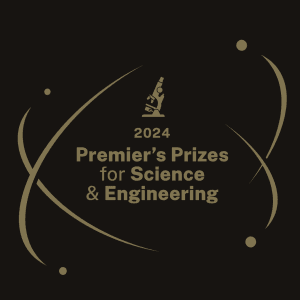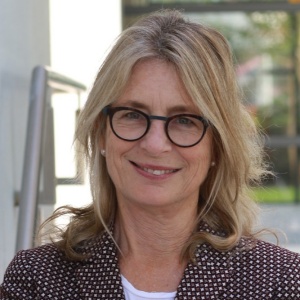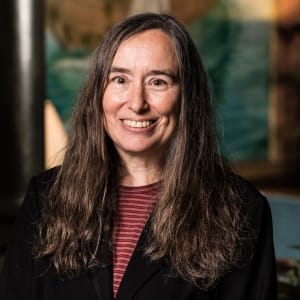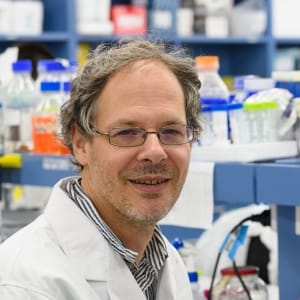
 The Royal Society of New South Wales (RSNSW) was delighted to learn that three of its Fellows and the 2023 James Cook Medal were named as recipients of the 2024 NSW Premier’s Prizes for Science and Engineering, announced at a ceremony held at Government House, Sydney on the evening of Wednesday, 30 October. Scientia Professor Helen Christensen AO FASSA FAHMS, Honorary Professorial Fellow of the Black Dog Institute and the winner of the 2023 RSNSW James Cook Medal was named the 2024 NSW Scientist of the Year.
The Royal Society of New South Wales (RSNSW) was delighted to learn that three of its Fellows and the 2023 James Cook Medal were named as recipients of the 2024 NSW Premier’s Prizes for Science and Engineering, announced at a ceremony held at Government House, Sydney on the evening of Wednesday, 30 October. Scientia Professor Helen Christensen AO FASSA FAHMS, Honorary Professorial Fellow of the Black Dog Institute and the winner of the 2023 RSNSW James Cook Medal was named the 2024 NSW Scientist of the Year.
In addition, Professor Susan Coppersmith FRSN FAA MNAS FAIP of UNSW Sydney was awarded the Prize for Excellence in Mathematics, Earth Sciences, Chemistry, or Physics, Distinguished Professor Ian Paulsen FRSN FAA FASM of Macquarie University was awarded the Prize for Excellence in Biological Sciences, and Distinguished Professor Karu Esselle FRSN FIEEE FIEAust of the University of Technology Sydney was awarded the Prize for Leadership in Innovation.
Scientia Professor Helen Christensen AO FASSA FAHMS
The Black Dog Institute: 2024 NSW Scientist of the Year
 Scientia Professor Helen Christensen is a renowned international expert in digital mental health research, recognised for her transformative contributions to mental health research and policy. Specialising in digital interventions and suicide prevention, her work has significantly influenced mental health care practices both in Australia and globally.
Scientia Professor Helen Christensen is a renowned international expert in digital mental health research, recognised for her transformative contributions to mental health research and policy. Specialising in digital interventions and suicide prevention, her work has significantly influenced mental health care practices both in Australia and globally.
Helen’s research is dedicated to using technology to prevent mental health issues and broaden public access to care. In 2000, she developed the digital intervention program, MoodGYM, to reduce depression in young people, which pioneered the provision of online self-help courses to address common mental disorders, and which have been used by millions of people across more than 160 countries.
Since then, 14 more software apps, platforms and websites have been developed. These apps and software packages have been evaluated in over 50 randomised controlled trials across the world, with, in some cases, samples of more than 6,000 individuals. These trials demonstrated that online treatment and prevention of depression and anxiety is effective and that positive improvements can be achieved through self-help rather than through the services of a therapist.
Her research has led to systematic approaches to suicide prevention, particularly in NSW. Using the available scientific evidence, she developed a model of suicide, incorporating community, media and medical components that led to a reduction in suicide admissions. This model of suicide prevention has been incorporated into national and state suicide plans, through policy change.
Her extensive leadership at the Black Dog Institute (BDI), where she served as the Executive Director and Chief Scientist from 2011 to 2021, exemplifies her commitment to taking research from the lab and developing practical applications to enhance mental health in schools, online communities, helplines and workplaces.
Under her guidance, BDI, a medical research institute focused on enhancing mental health through innovative research, clinical services and educational programs, has made major contributions to the prevention and treatment of mental health care, and acts as a model of how research can inform practice. Helen served as a Black Dog Board Director, 2021-2024, steering the institute’s ongoing strategies and initiatives.
She is currently a Director of the Ramsay Health Care Foundation, and previously a Non-Executive Director at the ‘R U OK?’ charity, the Director of the Centre for Mental Health Research at the Australian National University, a member of the Board of Directors of the Association of Australian Medical Research Institutes (AAMRI) and an Advisory Member, Digital Mental Health Advisory Group, Australian Commission on Safety and Quality in Health Care.
Helen’s long career has led to new evidence-based care that transcends geographical barriers. Her initiatives bridge the gap between clinical expertise and widespread, accessible care. The integration of digital technology within the mental health field has significantly enhanced individuals’ quality of life and advanced healthcare research worldwide.
Helen has authored over 600 journal publications and book chapters, a dozen books and 15 open-access websites and apps, accumulating over 92,000 citations and an h-index of 156.
Professor Susan Coppersmith FRSN FAA MNAS FAIP
UNSW Sydney: Prize for Excellence in Mathematics, Earth Sciences, Chemistry or Physics
 Professor Susan Coppersmith is a renowned theoretical physicist who has made fundamental advances in the study of multiple complex condensed matter systems, including granular materials, biomaterials and quantum computers. Her work has significantly enhanced our understanding of crystalline components and developed unifying theories across diverse areas such as population biology and superfluidity.
Professor Susan Coppersmith is a renowned theoretical physicist who has made fundamental advances in the study of multiple complex condensed matter systems, including granular materials, biomaterials and quantum computers. Her work has significantly enhanced our understanding of crystalline components and developed unifying theories across diverse areas such as population biology and superfluidity.
In the past five years, Susan’s contributions have included insights into increasing the fidelities of qubits hosted in silicon-germanium and germanium quantum dots. Her research has also improved our understanding of how quantum computation could enhance the discovery potential of dark matter experiments. Additionally, she developed a theory demonstrating quantitatively that the quantum tunnelling of the magnetisation of individual iron atoms displays stochastic resonance, a nonlinear phenomenon previously shown to operate in classical complex systems.
Her theoretical results have had practical implications, such as influencing Intel’s quantum computing group to investigate modified silicon-germanium structures. This work strengthens the position of NSW in developing quantum computing hardware and its potential applications, offering transformative performance enhancements and fostering new types of spintronics devices.
Susan has served as the Head of the School of Physics at UNSW Sydney and has been a member of the Sydney Quantum Academy’s Technical Advisory Committee since 2020. Her accolades include election to the Australian Academy of Science and the US National Academy of Sciences. She was also selected as the Australian Institute of Physics, Women in Physics Lecturer for 2024.
Susan has published 194 journal articles, attracting over 10,500 citations. She has an h-index of 56 and is an inventor on three US patents.
Distinguished Professor Ian Paulsen FRSN FAA FASM
Macquarie University: Prize for Excellence in Biological Sciences
 Distinguished Professor Ian Paulsen is a world-leading researcher in microbiology and a pioneer in microbial genomics and synthetic biology. He has developed the infrastructure and capabilities to harness the potential of synthetic biology, positioning Australia as a global leader in this transformative field.
Distinguished Professor Ian Paulsen is a world-leading researcher in microbiology and a pioneer in microbial genomics and synthetic biology. He has developed the infrastructure and capabilities to harness the potential of synthetic biology, positioning Australia as a global leader in this transformative field.
As Founder and Director of the ARC Centre of Excellence in Synthetic Biology, Ian aims to catalyse a bioeconomy based on alternatives to fossil fuel-derived products. The Centre develops microbes that convert agricultural biomass into high-value plastics, chemicals, fertilisers and fuels. In just three years, it has spun out nine companies, raising over $180 million in venture capital and producing innovations such as a methane emission-reducing cattle feed supplement.
Ian co-founded and directs the Australian Genome Foundry, a world-class facility for automated microbe construction and testing. He also co-directs Australia’s node of Yeast 2.0, an international consortium building the world’s first complex synthetic organism.
His work addresses critical global challenges such as food security, waste management, water quality and decarbonisation, with significant implications for NSW. Ian’s research has the potential to create new economic opportunities by leveraging the state’s rich biomass resources. His commitment to training future synthetic biology researchers fosters a skilled workforce driving innovation and growth across NSW.
Ian is a fellow of the Royal Society of NSW and Australian Academy of Science, and a former ARC Laureate Fellow. His research has secured over $100 million in funding and he has published over 380 journal articles, attracting over 100,000 citations with an h-index of 132. His publications are cited 251 per cent more than the global average for his field, marking him as a Highly Cited Researcher by the Institute for Scientific Information.
Distinguished Professor Karu Esselle FRSN FIEEE FIEAust
University of Technology Sydney: Prize for Leadership in Innovation in NSW
 Professor Karu Esselle is a world leader in electromagnetic, antenna and radio frequency engineering. His pioneering work has significantly advanced the fields of telecommunications and defence.
Professor Karu Esselle is a world leader in electromagnetic, antenna and radio frequency engineering. His pioneering work has significantly advanced the fields of telecommunications and defence.
mong his many research innovations is the 2023 Eureka Prize-winning ‘MetaSteering’, a novel antenna beam steering method that has been adopted worldwide by industry, governments and academics to solve challenges in telecommunications and defence systems. Karu has also made substantial contributions to satellite communication technology.
In collaboration with the NSW Telco Authority, a major satellite operator and two NSW small to medium enterprises, and supported by $2.6 million in funding from the NSW and Commonwealth governments, he developed a unique, energy-efficient satellite communication terminal.
The Australian-invented-and-manufactured SATCOM user terminal is designed to close the digital divide in rural and regional NSW, enhancing quality of life by improving connectivity for communities, schools, hospitals, government services and small businesses. The terminal’s ability to be transported, rapidly deployed and operated using renewable energy makes it essential for NSW Emergency Services, especially during crises when traditional power and communication infrastructure fail.
Karu is a Fellow of The Royal Society of New South Wales, the Institute of Electrical and Electronics Engineers (IEEE) and Engineers Australia. He was named Australia’s Professional Engineer of the Year 2022 and received the 2019 Motohisa Kanda Award for the most cited paper in the IEEE Transactions on Electromagnetic Compatibility. Karu has secured over $33 million in research grants and contracts and authored more than 750 publications with over 15,800 citations and an h-index of 61.